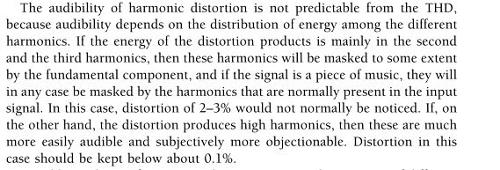KeithEmo
Member of the Trade: Emotiva
- Joined
- Aug 13, 2014
- Posts
- 1,698
- Likes
- 868
The above statement seems to show a complete misunderstanding of Science in the 21st century. In modern science there is no such thing as proof, just reliable and unreliable evidence.
It is well known to people who actually study and understand modern science that all findings of science are provisional until more reliable evidence is found.
Thus, we can operate constructively in a world where Newton's findings about the laws of motion describe 99.999+% of all of our experiences well enough to build most SOTA systems, but we also know that Einstein showed how they were false almost 100 years ago. In a few exceptional cases Einstein's findings are needed to even be in the right zip code.
You seem more interested in arguing trivial semantics than in addressing the actual point of my post, which is that we all make assumptions, or evaluations, or whatever you prefer to call them, based on prior experience and generalized knowledge. For example, if my neighbor were to knock on my front door and ask me if I wanted to see the real live unicorn that just wandered into her back yard, I would probably consider the likelihood of there actually being a real live unicorn in her yard pretty low, if she said that it was a horse instead, I would still consider it very unlikely, but less so than with a unicorn, and, if she'd said a dog, then I would consider it to be not at all unlikely.
My point was that, while one might argue that "all unproven hypotheses might possibly be true", we still apply basic "rules of thumb" when determining which ones are worth the effort to examine and which are not. And, in the "audiophile world", most of us consider a claim that a documented measurable difference may correlate to an audible difference to be a lot more likely, and so more worth our effort to confirm or deny, than a claim that an audible difference exists where there is no measured difference with which it might correlate. The overriding point being that, since none of us have the unlimited time or resources necessary to thoroughly test every claim we hear, we all make "snap judgements", based on only partial clues, to decide which ones to pursue and which ones to ignore.
EVERYBODY does this; no pharmaceutical company has the time and resources to test every chemical to confirm its effects on every medical condition, no electrical engineer tests every possible way of connecting each component "just in case" it works better in some new and unusual configuration, and no audiophile has the time and money to audition every component.
(It has been suggested that the human ability to approximate and generalize this way almost certainly evolved as a survival trait. When a small primate living on the savannah hears an odd noise, he is most likely to survive if he pays attention to "lion like noises" and ignores "cricket like noises" - and so learning to make a good guess as to whether a given noise is one or the other is an excellent survival trait. A modern equivalent would be to pay attention to claims which might prove useful, and which seem to be based upon, or at least don't contradict, "known science", and ignore ones that seem to be based on emotional or unscientific premises. Some folks refer to this as a "BS detector" - and some people's BS detectors seem to work a lot better than others. )



